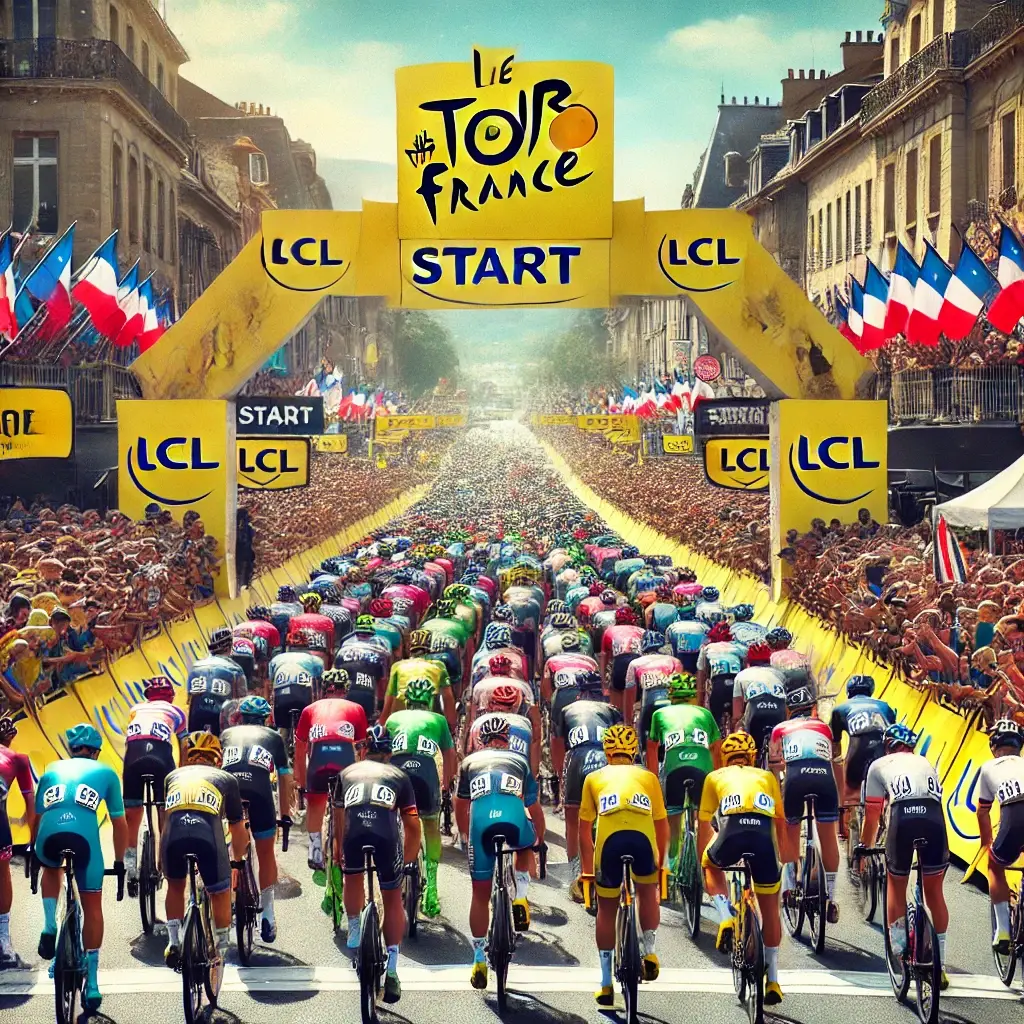Lance Armstrong made history on July 24, 2005, by winning his seventh consecutive Tour de France, setting a record for the most victories in one of the most grueling athletic competitions in the world. However, this achievement was later overshadowed by a doping scandal that led to Armstrong being stripped of all seven titles in 2012. The initial victory and subsequent fallout sparked widespread debate about performance-enhancing drugs in sports, significantly impacting perceptions of professional cycling and athlete integrity.
Lance Armstrong’s seventh Tour de France victory in 2005 marked the pinnacle of his career, capping off an extraordinary comeback story that had captured the world’s imagination. Diagnosed with advanced testicular cancer in 1996, Armstrong’s battle against the disease and his return to professional cycling were seen as a triumph of the human spirit and resilience. His victories were celebrated as a testament to determination and willpower.

Armstrong’s dominance in the Tour de France began in 1999, just three years after his cancer diagnosis. His training regimen, team strategy, and sheer physical endurance set him apart from his competitors. Each year, he demonstrated unparalleled consistency and strength, excelling in both the mountain stages and time trials, which are critical to success in the Tour.
The Tour de France is widely regarded as one of the most challenging sporting events in the world. Covering approximately 3,500 kilometers over three weeks, the race tests cyclists’ endurance, speed, and tactical acumen. Armstrong’s ability to maintain peak performance throughout these grueling stages earned him admiration and respect from fans and fellow athletes alike.
Armstrong’s victories were not just individual achievements; they were also a result of exceptional teamwork. The U.S. Postal Service and later Discovery Channel Pro Cycling teams provided crucial support, with team members playing pivotal roles in protecting Armstrong from rivals, setting the pace, and ensuring he had the best possible conditions to excel.
However, Armstrong’s career and reputation began to unravel as allegations of doping surfaced. Accusations from former teammates, detailed investigations, and testimonies painted a picture of a sophisticated and systematic use of performance-enhancing drugs. Despite Armstrong’s vehement denials, the evidence against him mounted.
In 2012, the United States Anti-Doping Agency (USADA) released a comprehensive report that concluded Armstrong had engaged in “the most sophisticated, professionalized and successful doping program that sport has ever seen.” This report led to the Union Cycliste Internationale (UCI) stripping Armstrong of his seven Tour de France titles and banning him from professional cycling for life.
The fallout from Armstrong’s doping scandal was profound and far-reaching. It not only tarnished his legacy but also cast a shadow over professional cycling as a whole. The sport, which had already been grappling with doping issues, faced increased scrutiny and calls for reform to restore its integrity and credibility.
Armstrong’s case sparked a broader conversation about the prevalence of performance-enhancing drugs in sports and the pressures athletes face to succeed at any cost. It highlighted the ethical dilemmas and health risks associated with doping, prompting sports organizations to implement stricter testing protocols and harsher penalties for violations.
Despite the scandal, Armstrong’s story remains a complex and multifaceted one. His battle with cancer and subsequent advocacy for cancer awareness and research through the Lance Armstrong Foundation (now Livestrong Foundation) have had a lasting positive impact. The foundation has raised millions of dollars to support cancer patients and survivors, underscoring the duality of Armstrong’s legacy.
The media played a significant role in both building and dismantling Armstrong’s public image. Initially hailed as a hero and an inspiration, Armstrong’s fall from grace was equally dramatic, with extensive coverage of the doping allegations and their aftermath. This shift in narrative reflected the broader societal struggle with reconciling admiration for athletic achievements with the reality of unethical behavior.
Armstrong’s admission of doping during a 2013 interview with Oprah Winfrey was a pivotal moment in his saga. It marked the end of years of denial and the beginning of a long and difficult process of seeking redemption. While some viewed his admission as a step toward accountability, others saw it as too little, too late.
The legacy of Lance Armstrong is a reminder of the complex nature of sports heroism. It challenges us to consider how we define success and the qualities we admire in athletes. Armstrong’s story underscores the importance of integrity and ethical conduct, both on and off the field.
The Tour de France, despite the controversies, remains one of the most prestigious events in the world of cycling. The race has continued to evolve, with new champions emerging and the sport striving to move past its troubled history. Efforts to combat doping have intensified, aiming to ensure a level playing field for all competitors.
Armstrong’s journey also serves as a cautionary tale about the dangers of unchecked ambition and the lengths to which individuals may go to achieve their goals. It prompts reflection on the values that drive athletes and the systems that support or undermine fair competition.

In the years since the scandal, Armstrong has attempted to rebuild his life and contribute to society in meaningful ways. His work with cancer advocacy and his willingness to speak about his experiences offer insights into the challenges of redemption and the ongoing impact of past actions.
Lance Armstrong’s story, with all its highs and lows, continues to resonate in the world of sports and beyond. It invites ongoing discussion about the nature of competition, the role of ethics, and the capacity for personal growth and change.
